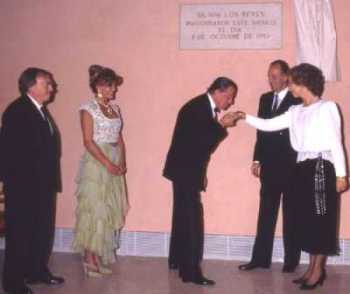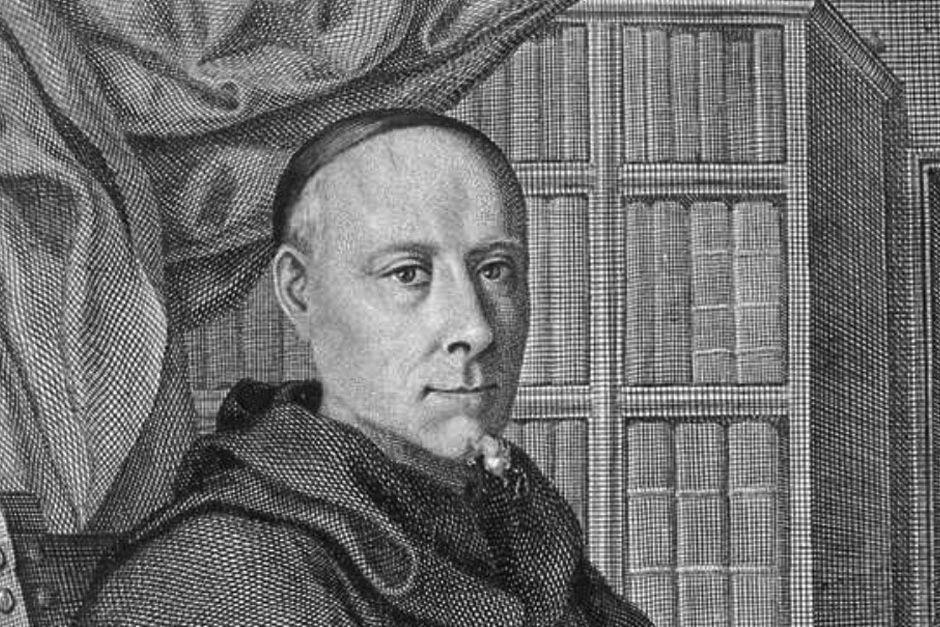October 8
Saint’s Day for Brígida, Demestrio, Nestor, Pedro and Artemón.
1573 - Spanish troops withdrew from the siege of Alkmaar, in the north of Holland, after the town had held out for more than a month. It marked a turning point for rebel forces in the 80 Years War, or the Dutch War of Independence, against Catholic Spain.

1992: The Spanish King and Queen opened the Thyssen Museum in Madrid.
1881 - the new railway line between Madrid and the Portuguese capital, Lisbon, was inaugurated.
1918 - Antonio Maura resigns with his cabinet.
1988 - the first underground section of the Valencia metro network opened.
1992 - The Spanish King and Queen opened the Thyssen Museum in Madrid.
The image of Cataluña has sunk following the exodus of the companies.
‘The opposition has ruled out forming a concentrated Government now’ – the socialists now want the opening of talks as Ciudadanos demands article 155 be triggered and a penal process to be opened.
Births

He joined the Benedictine order at the age of 14, and had taken classes in Galicia, León, and Salamanca. He later taught theology and philosophy at the University, where he earned a professorship in theology.
He was appalled by the superstition and ignorance of his time, and his works aimed at combating the situation. His fame spread quickly throughout Europe. His revelations excited considerable opposition in certain quarters in Spain, for example from Salvador José Mañer and others; but the opposition was futile, and Feijóo's services to the cause of education and knowledge were universally recognized long before his death in Oviedo.
A century later Alberto Lista said that a monument should be erected to Feijóo, at the foot of which all his works should be burned. He was not a great genius, nor a writer of transcendent merit; his name is connected with no important discovery, but his literary style is clear and not without distinction. He tried to uproot many popular errors, awakened an interest in scientific methods, and is justly regarded as the initiator of educational reform in Spain.
1741 - Jose Scaffold, writer.
1760 - Dionisio Alcalá Galiano, sailor, soldier and scientist (d. 1805)
1844 - Bartolomé Maura y Montaner, painter (d. 1926)
1881 - Jose Solchaga, soldier.
1894 - Vicente Rojo Lluch, teacher and military Chief of Staff of the Republican Army during the Spanish Civil War.
1919 - Teresa Pàmies, writer. (d. 2012)
1927 - Carmina Virgili, chemist.
1942 - Pepe Domingo Castaño, communicator, writer and singer.
1956 - Tente Sánchez, footballer.
1959 - Miguel de Andrés, footballer
1960 - Lorenzo Milá, journalist
1961 - Carlos Goñi, musician.
1969 - Susanna Griso, journalist and presenter.
1971 - Roberto Rios, footballer.
1976 - Galo Blanco, tennis player, born in Oviedo
1993 - Garbiñe Muguruza, tennis player
1996 - Sara Sorribes Tormo, tennis player
Deaths
1844 - Martín Fernández de Navarrete, sailor and writer (b. 1765)
1898 - Juan Alonso Zayas, soldier.
1946 - Agustín Parrado García, bishop (b. 1873)
1955 - Trifón Gómez, politician and unionist (b. 1889)
1963 - Remedios Varo, Spanish-Mexican painter (b. 1908)
1990 - José Luis Alonso Mañés, theatre director (b. 1924)
1993 - Santiago Navarro, basketball player (b. 1936)
